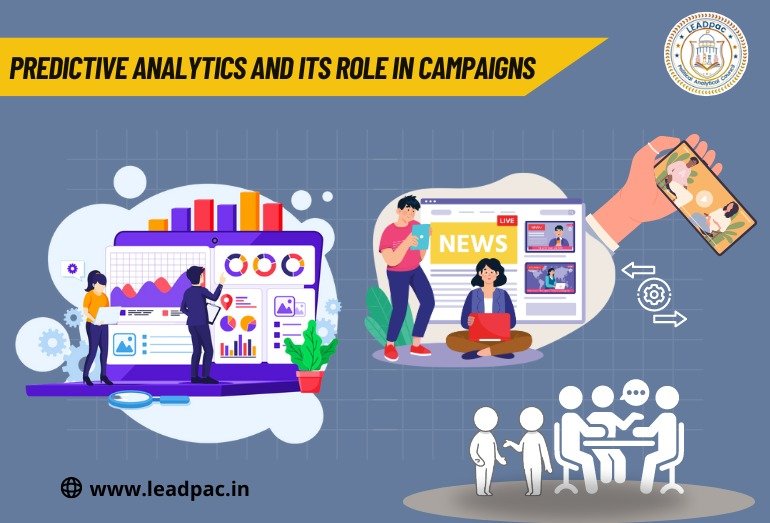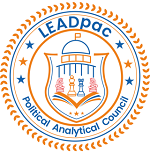Predictive Analytics Role in Campaigns

In the age of big data, predictive analytics has emerged as a transformative tool for businesses and organisations across various industries. At its core, predictive analytics involves the use of historical data, statistical algorithms, and machine learning techniques to identify the likelihood of future outcomes. This powerful approach is particularly impactful in the realm of campaigns, where predicting voter behaviour, customer responses, or market trends can provide a significant competitive advantage.
Understanding Predictive Analytics
Predictive analytics leverages data to forecast future events. It uses a combination of techniques including data mining, machine learning, and statistical modelling to analyse current and historical data. The primary goal is to make informed predictions about future events, behaviours, and trends. These predictions are not just educated guesses; they are data-driven insights that can help organizations make proactive decisions.
The Role of Predictive Analytics in Campaigns
Campaigns, whether political, marketing, or social, are essentially efforts to influence a target audience. Predictive analytics plays a crucial role in enhancing the effectiveness of these campaigns by providing insights into audience behaviour and preferences. Here’s how predictive analytics contributes to various types of campaigns:
1. Political Campaigns
In political campaigns, understanding voter behaviour is key to winning elections. Predictive analytics can help campaign managers identify which voters are most likely to support their candidate and tailor their outreach efforts accordingly. By analysing data from past elections, social media interactions, and demographic information, predictive models can segment voters into different categories, such as likely supporters, undecided voters, and non-supporters. This enables campaign teams to allocate resources more efficiently, targeting undecided voters with persuasive messaging and ensuring strong turnout among likely supporters.
2. Marketing Campaigns
For marketing campaigns, predictive analytics can transform how businesses interact with their customers. By analysing customer data, businesses can predict future buying behaviours, identify trends, and personalize marketing efforts. For instance, a retail company can use predictive analytics to determine which products a customer is likely to purchase next based on their past buying habits. This allows for personalized marketing strategies, such as targeted ads, personalized emails, and product recommendations, leading to higher conversion rates and customer satisfaction.
3. Social Campaigns
Social campaigns, aimed at raising awareness or driving social change, also benefit from predictive analytics. These campaigns often rely on understanding public sentiment and predicting the impact of different messages. By analysing social media data, news trends, and public opinion surveys, campaigners can craft messages that resonate more deeply with their target audience. Predictive analytics can also help in identifying key influencers who can amplify the campaign’s message and predicting the potential reach and impact of campaign efforts.
Benefits of Predictive Analytics in Campaigns
The integration of predictive analytics into campaign strategies offers several significant benefits:
- Improved Decision Making: Predictive analytics provides data-driven insights that help campaign managers make informed decisions about where to focus their efforts and resources.
- Enhanced Personalization: Campaigns can be tailored to the specific preferences and behaviours of target audiences, leading to more effective engagement and higher success rates.
- Resource Optimization: By identifying the most promising opportunities and areas of impact, campaigns can allocate their resources more efficiently, maximizing their return on investment.
- Early Detection of Trends: Predictive analytics can identify emerging trends and shifts in public opinion or customer behaviour, allowing campaigns to adapt quickly and stay ahead of the competition.
- Increased ROI: With more targeted and effective campaigns, organizations can achieve better outcomes with lower costs, resulting in a higher return on investment.
Challenges and Considerations
While predictive analytics offers numerous advantages, it also comes with challenges. The quality of predictions depends heavily on the quality of the data used. Inaccurate or incomplete data can lead to incorrect predictions, potentially harming the campaign. Additionally, privacy concerns and ethical considerations must be addressed, especially when dealing with sensitive voter or customer information.
Conclusion
Predictive analytics is revolutionising the way campaigns are conducted, providing valuable insights that drive more effective and efficient strategies. By leveraging historical data and advanced analytics techniques, organizations can anticipate future behaviours and trends, allowing for more personalized and impactful campaign efforts. As technology continues to advance, the role of predictive analytics in campaigns is likely to grow, offering even greater opportunities for innovation and success in the future.

Add a Comment